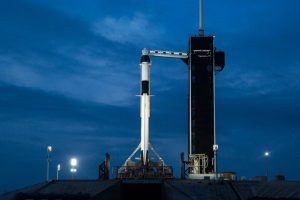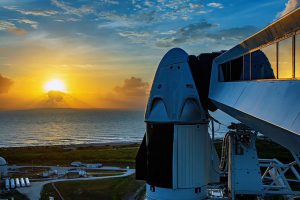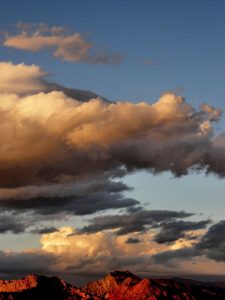Intervention of unfavorable weather conditions led to postponement of NASA’s astronauts, sixteen minutes before scheduled launch time. Cloudy weather and rough waves in the Atlantic caused SpaceX to delay the launch that was to be the first to fly American astronauts Robert L. Behnken and Douglas G. Hurley from Cape Canaveral, Florida, Kennedy Space Center launch complex to the International Space Station in nearly a decade.

The next launch schedules are Saturday, May 30th, 3:22 p.m. and Sunday, May 31st at 3 p.m. Eastern time.
The launch of two American astronauts on Falcon 9 integrated with Dragon crew spaceship, designed and built by billionaire Elon Musk’ SpaceX, would begin a new era in human spaceflight by a private space agency. NASA has been in close consultation with SpaceX for this mission. SpaceX has plans to sell flights to orbit for individual customers, companies and other nations, promising possibilities of tourism, manufacture and research in space.
President Trump and Vice President Mike Pence were present at NASA’s Kennedy Space Center to watch the launch.

SpaceX mission managers decided whether to fill rocket fuel and liquid oxygen into the pressurized tanks of Falcon 9, before deciding to call off the launch due to light showers, grey skies and impending storm clouds which would interfere with the launch. Around 16 minutes before scheduled lift-off, SpaceX official weather officers stated that weather conditions would not clear up in time for the launch. Lift-off of Falcon 9 would have to be at a precise time in order to meet the International Space Station in Earth orbit passing overhead. Fast changing weather, unfavorable conditions and clouds over Central Florida have often caused delays of space missions in the past.

Factors to consider when delaying a launch follow a detailed set of rules, for instance, wind speed, electric charge of clouds in the atmosphere that could discharge as lightning, causing high risk or catastrophic failure of the mission. Safety of the crew is of primary concern and will not be compromised.
NASA Administrator, James Frederick Bridenstine praised the mission team for their decision to delay the launch to Saturday or Sunday.




